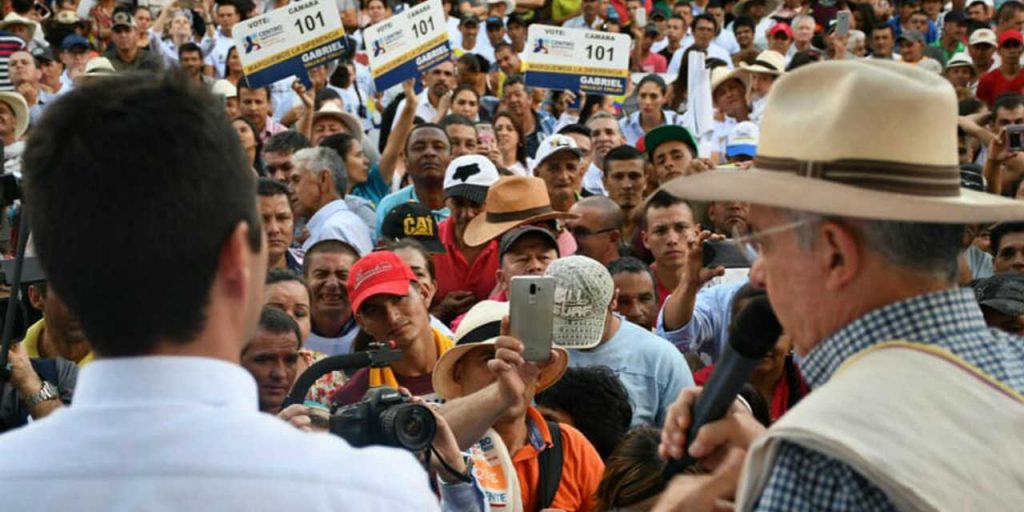A costly, but effective way of cheating elections in Colombia is buying political support. This allegedly went wrong for candidate Ivan Duque after supporters complained they didn’t get paid.
The embarrassing incident took place in Tunja, the capital of Boyaca, on Thursday after a hectic day that was marred by protests of detractors of former President Alvaro Uribe, Duque’s political patron.
The presidential candidate, Uribe, and two local aspiring congressmen of the hard-right Democratic Center party organized a political rally.
How to cheat Colombia’s elections: The ‘machinery’
At the end of the rally, dozens of supporters protested, claiming they hadn’t been paid the promised $9. Others claimed they had only been paid $7.
“A lady called Nohora Eliana offered 25,000 pesos,” an anonymous participant told newspaper El Espectador. The source wouldn’t give her name citing security concerns.
“Some who went were given a t-shirt and a cap, others just a t-shirt and a banner, and others just a sign,” the anonymous source said.
“But when it was over, around 1 in the afternoon, we had to look for her because she had turned off her cell phone,” according to the disgruntled supporter.
Some of the supporters were able to locate the alleged campaign worker of aspiring house representative Diana Peña.
Anonymous source via El Espectador
Peña told the newspaper that she was unaware that attendants to the rally were allegedly promised a payment.
“My campaign banned this type of activity,” the candidate told El Espectador.
“What we at the Democratic Center do is go door to door and tell the people that this is different than traditional politics,” Peña said.
How to cheat Colombia’s elections: Voter registration fraud
The Electoral Observation Mission (MOE), an NGO that has been monitoring possible election fraud since 2007, told the newspaper that paying people to attend political rallies is not illegal.
Nevertheless, “it tells a lot about the state of the political parties that they are unable to motivate citizens to voluntarily attend these marches,” the MOE was quoted as saying.
The MOE was unable to immediately verify the claims of support-buying.


